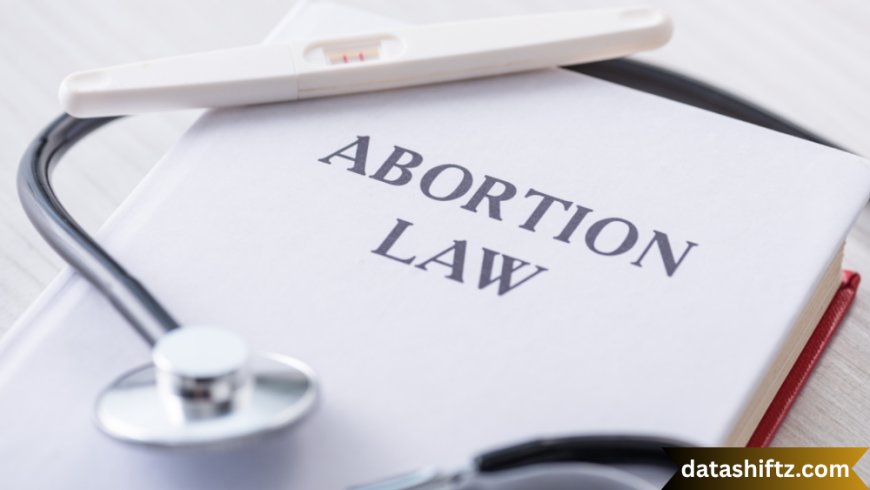Florida Abortion Law and Ectopic Pregnancy: Legal Implications and Medical Concerns

Introduction
Florida has long been at the center of the national abortion debate in the United States. In recent years, the state has enacted several restrictive abortion laws, sparking controversy among legal experts, healthcare providers, and women’s rights advocates. One particularly sensitive and complex issue is how Florida’s abortion laws intersect with ectopic pregnancies—a medical emergency that, if not treated, can be life-threatening.
This article explores the intricacies of Florida’s abortion legislation, what it means for women facing ectopic pregnancies, how the law interprets medical exceptions, and the potential impacts on healthcare access and public health. Through structured headings, a detailed table, and a clear list of key points, we aim to break down this nuanced issue professionally and comprehensively.
Understanding Florida's Abortion Law
In 2022, Florida enacted House Bill 5 (HB5), known as the “Reducing Fetal and Infant Mortality Act”. This law bans most abortions after 15 weeks of gestation, with no exceptions for rape, incest, or human trafficking. The only permitted exceptions are when the mother’s life is at risk or when the fetus has a fatal abnormality.
In 2023, Florida passed an even stricter measure—a 6-week abortion ban, which was temporarily blocked but later upheld in 2024 following the state supreme court’s decision. These new regulations have raised alarm among medical professionals, particularly regarding ambiguities in the language around medical exceptions, including how ectopic pregnancies are handled.
What Is an Ectopic Pregnancy?
An ectopic pregnancy occurs when a fertilized egg implants outside the uterus, most commonly in the fallopian tubes. This condition is not viable for fetal development and is considered a medical emergency. If left untreated, it can cause the rupture of internal organs, massive internal bleeding, and even death.
Medical vs. Legal Perspective on Ectopic Pregnancies
Ectopic pregnancies are not considered “abortions” in the medical community since they cannot result in a live birth and always pose a risk to the mother. However, Florida’s laws use language that can sometimes blur distinctions, leading to confusion for healthcare providers fearing legal repercussions for medically necessary care.
Key Concerns
-
Vague Language: Some laws mention "termination of pregnancy" without specifying exceptions for ectopic cases.
-
Delayed Treatment: Doctors and hospitals may hesitate to act swiftly due to fear of prosecution.
-
Legal Liability: Medical practitioners risk criminal charges or loss of licenses for violating ambiguous rules.
-
Ethical Dilemmas: Physicians must choose between legal compliance and ethical responsibility to preserve a patient’s life.
Florida Abortion Law vs. Ectopic Pregnancy Medical Facts
| Category | Florida Abortion Law | Medical Facts about Ectopic Pregnancy |
|---|---|---|
| Definition of Abortion | Termination of any pregnancy | Not considered a traditional abortion |
| Viability | Bans abortion after 6 or 15 weeks unless life at risk | Ectopic pregnancies are never viable |
| Life Exception Clause | Permitted if mother’s life is at “serious risk” | Ectopic pregnancies always pose serious risk |
| Legal Ambiguity | Yes, especially in defining non-viable pregnancies | No ambiguity medically—it is a life-threatening event |
| Time Sensitivity of Treatment | Not directly addressed | Treatment must be immediate to prevent death |
| Criminal Penalties for Doctors | Possible if law is interpreted strictly | Doctors may hesitate, delaying emergency care |
Key Implications of Florida's Law on Ectopic Pregnancies
-
Confusion Among Healthcare Providers
Legal uncertainty can cause delays in necessary treatment. -
Risk to Women's Lives
Delay in treating ectopic pregnancies increases the risk of fatal outcomes. -
Legal and Ethical Conflict
Doctors are caught between professional duty and possible legal consequences. -
Underreporting and Mistrust
Patients may fear seeking help due to stigmatization or unclear laws. -
Medical Advocacy Backlash
Major health organizations like the AMA and ACOG have voiced concerns. -
Reduced Access to Care
Some hospitals have chosen to limit abortion-related care to avoid legal scrutiny. -
Mental Health Impact
Women denied prompt care for a medical emergency may face psychological trauma.
What the Law Says About Medical Exceptions
The 2023 six-week ban allows abortion only when:
-
The mother's life is at risk.
-
The pregnancy poses a “serious risk of substantial and irreversible physical impairment of a major bodily function.”
This language does include ectopic pregnancies if interpreted broadly, but critics argue it is too vague and places the burden of proof on physicians in real-time emergencies.
Real-Life Cases
-
In states with similar laws, women have been forced to wait until a fallopian tube ruptured before doctors could legally act.
-
Some doctors report they need hospital ethics board approvals, delaying care.
Public and Legal Response
Public Reaction
The abortion law, especially as it pertains to medical emergencies, has divided public opinion:
-
Pro-life advocates argue that exceptions already exist for life-threatening situations.
-
Medical and women’s rights groups say the laws do not go far enough in clarifying emergency exceptions.
Legal Challenges
Several lawsuits have been filed challenging the constitutionality of Florida’s abortion laws. Some specifically cite cases where delayed care endangered women with ectopic pregnancies.
Conclusion
Florida’s evolving abortion laws reflect the wider national debate over reproductive rights in the post-Roe era. While these laws aim to reduce elective abortions, the lack of clarity surrounding medical emergencies like ectopic pregnancies has created significant risk for women and healthcare providers.
As legal frameworks tighten, the need for explicit language, clearer guidelines, and protection for medical professionals becomes urgent. Ectopic pregnancies are not moral debates—they are medical emergencies. Legislation that does not recognize this distinction may cost lives, hinder healthcare delivery, and force painful decisions on those in crisis. The challenge moving forward is to reconcile medical reality with legal frameworks in a way that prioritizes patient health and professional integrity.





























